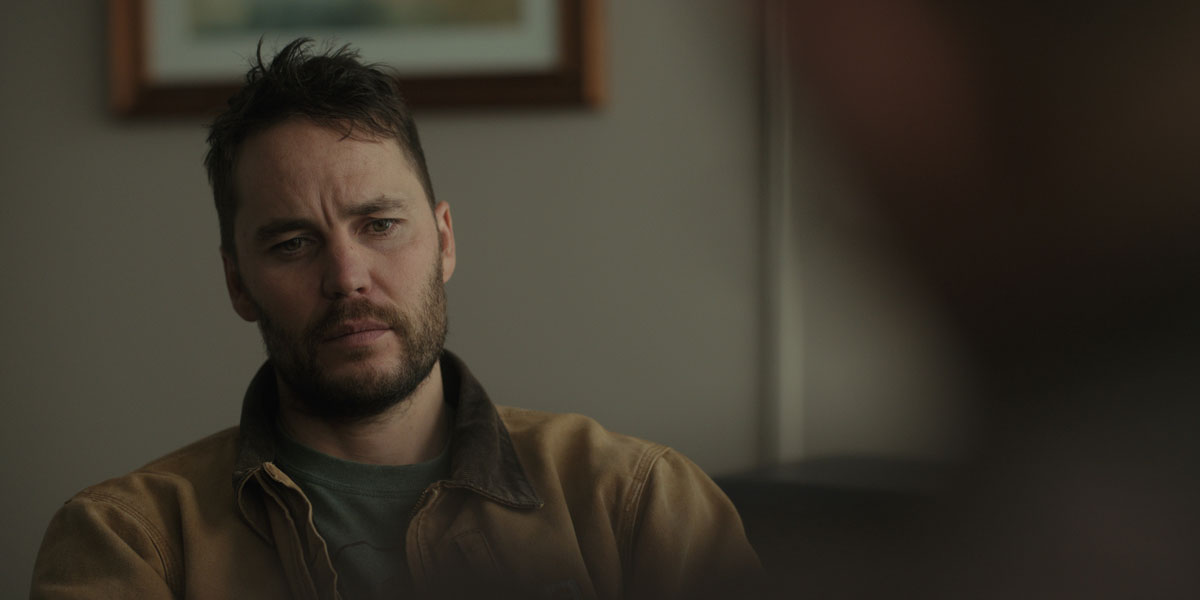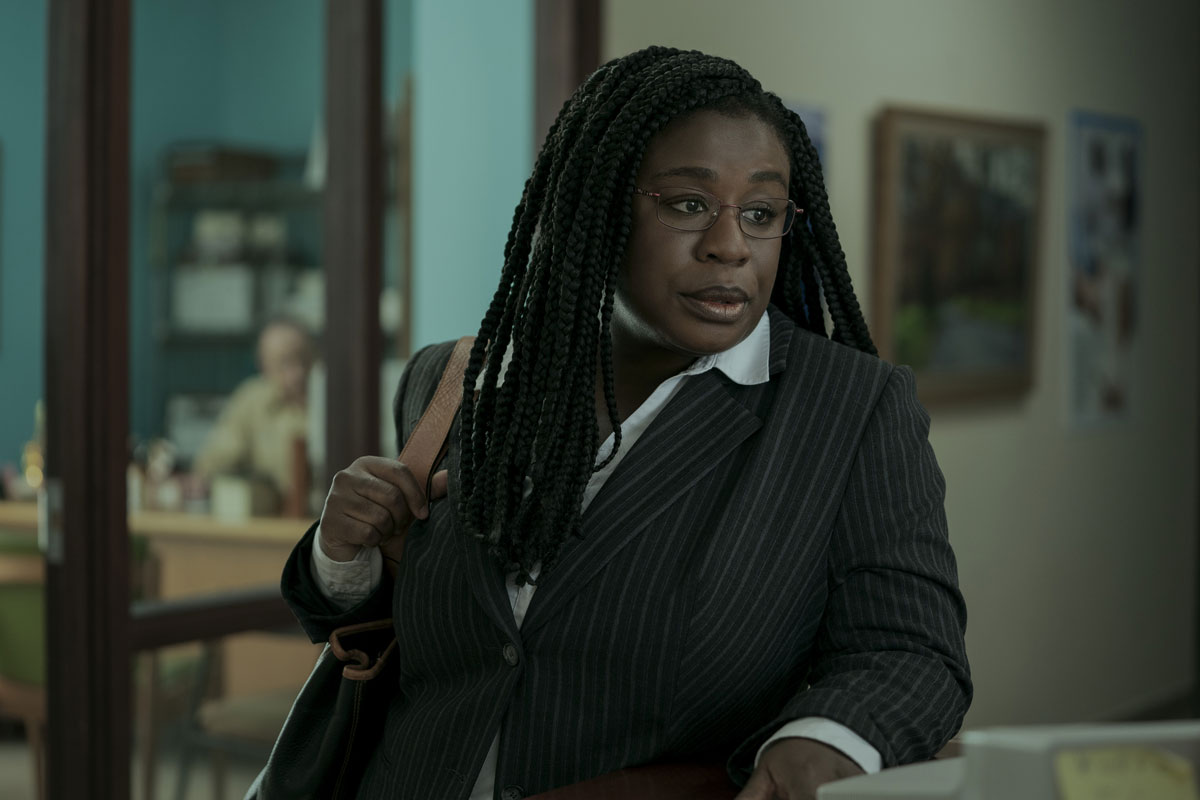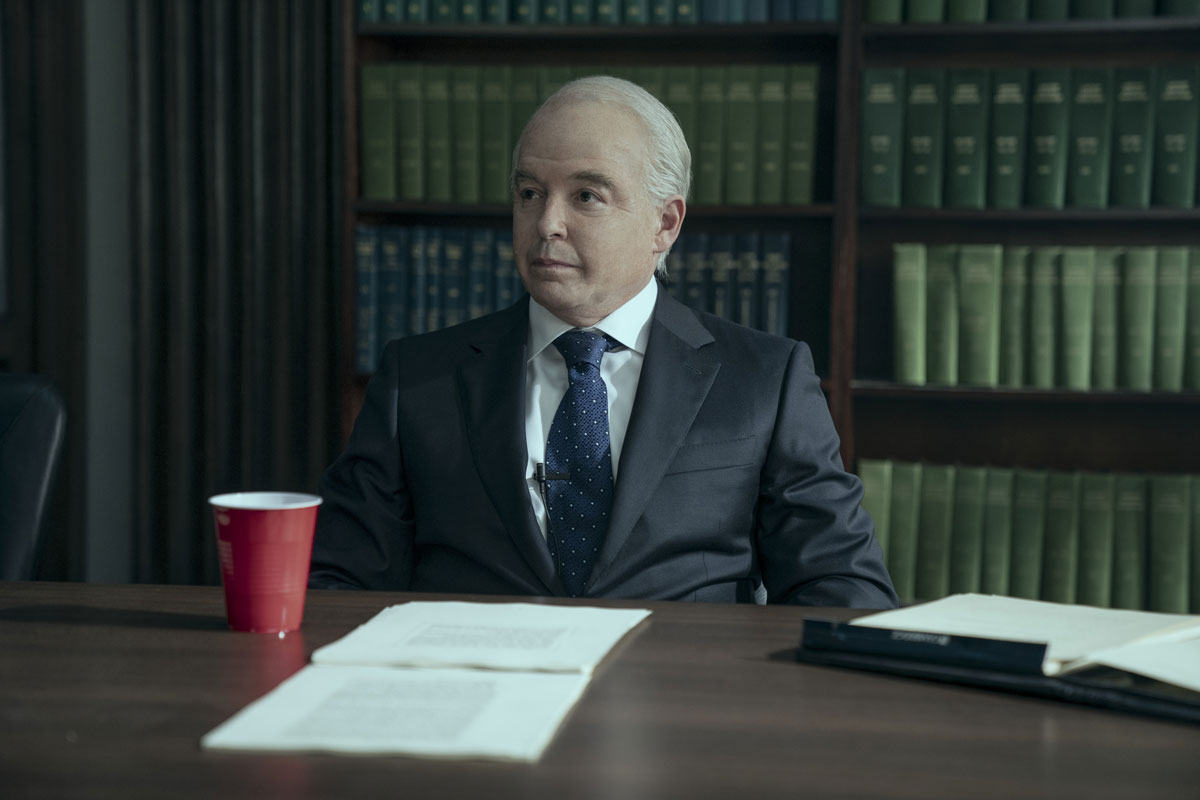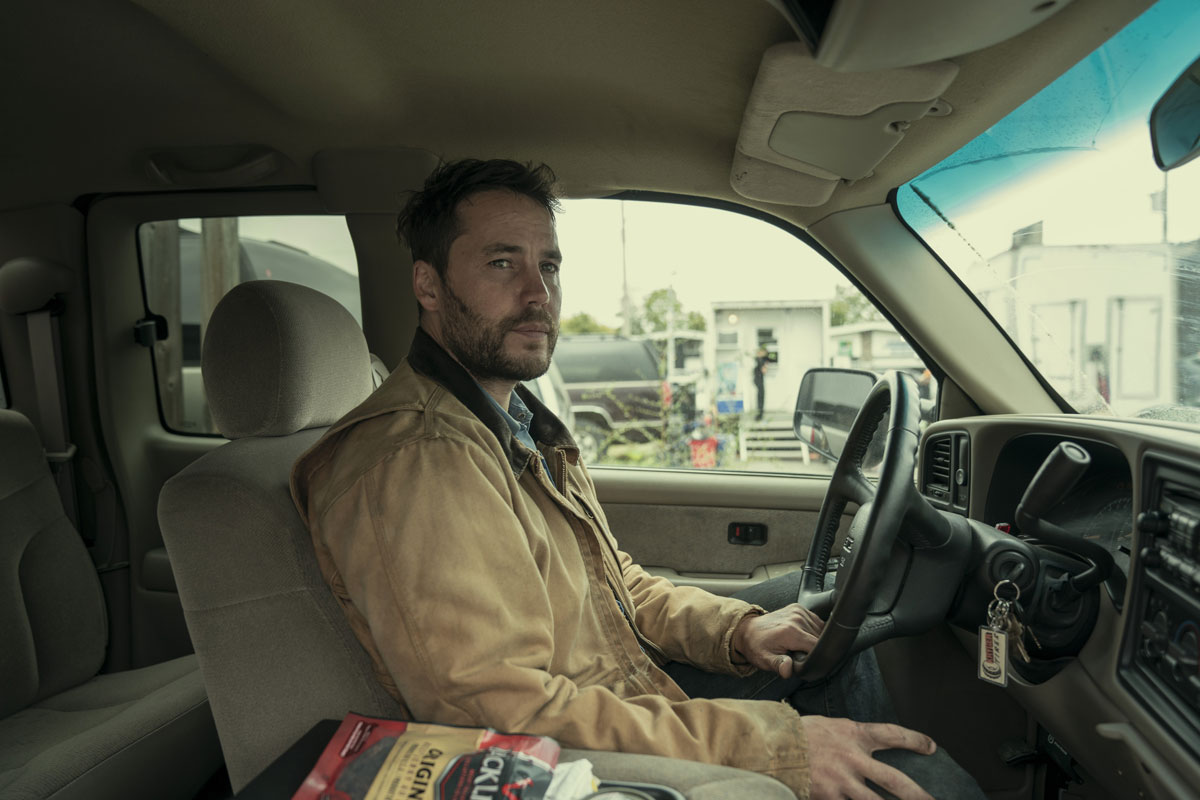
This is a still from the Netflix series Painkiller featuring Taylor Kitsch
Painkiller came out on Netflix on August 10. It’s a six-part series on Purdue Pharma and the Sackler family. To make a very long story incredibly short, Purdue & the Sacklers created and aggressively marketed OxyContin, through questionable, if not completely unethical means. I watched the series this weekend in one sitting. If you’re in the mood for getting angry—and I mean livid—then I highly recommend it! Purdue and the Sackler family are responsible for America’s opioid epidemic, full stop. New polling conducted by KFF (they focus on health policy reporting) confirms that now a third of Americans have a family member who has suffered from drug addiction:
The drug crisis is hitting home for the majority of adults in the U.S.
According to the latest findings by KFF, 66% of adults said they or someone in their family have experienced drug or alcohol addiction, become homeless due to addiction, or suffered an overdose ending in an emergency room visit, hospitalization, or death.
Three in 10 people said they or a family member have been addicted to opioids, including prescription painkillers and illegal drugs such as heroin or fentanyl.
And nearly 1 in 10 respondents said they had lost a relative due to an overdose.
The poll found a difference in geographic areas as well.
In rural regions, 42% of adults reported that they have been addicted to opioids, per the new survey, whereas 30% of people in suburban areas faced the same issue, as did 23% of urban dwellers.
Along racial lines, 33% of White adults said they or a relative had experienced opioid addiction, compared to 23% of Black adults and 28% of Hispanic adults.
The poll also revealed a lack of help for those experiencing addiction. Of those who said they or a family member have been addicted to prescription painkillers, alcohol, or an illegal drug, only 46% reported that they or their relative received treatment.
The new poll was conducted from July 11 to the 19 and surveyed 1,327 U.S. adults.
In 2022, there were nearly 110,000 drug overdose fatalities reported in the U.S., setting a new record, according to the Centers for Disease Control and Prevention.
I’m glad KFF included questions on treatment, or the lack thereof. For most of us, drugs and alcohol are in our faces everyday, from media to gatherings to dinner with friends. Or in the case of opioids, you may get them from your doctor who you (ideally) trust. Then we get judged for becoming addicted, when that’s the scientifically logical outcome of these substances. No, it’s not that you’re weak or can’t handle something. It’s that your body is having a predictable biological response. We absolutely need more accessible treatment, and greater empathy for people going through it.
One of the most affecting parts of Painkiller was the legal disclaimer before each episode: they filmed real parents who, after reading the basic jargon, “What you are about to see is based on facts. Some of the facts have been changed…” then spoke about the child they had lost to OxyContin. It could happen to any one of us, as these new poll numbers show.
One last thing, and also so we don’t end on such a bleak note: if you’re thinking of passing on Painkiller because you watched Hulu’s Dopesick from 2021, Painkiller stars Uzo Aduba, and she is on FIRE in it.
Photos credit: Keri Anderson/Netflix














I thought Matthew Broderick as that twisted f*ck Richard Sackler was also brilliant
Appreciated Uzo Aduba’s character highlighting the plight of the crack cocaine epidemic in the early 90’s which was targeted specifically at Black low-income people and led to mass incarceration
We’re living through the Fentanyl and Tranq epidemic right now (post Covid)
I thoroughly enjoyed Hulu’s ‘Dopesick’ as well. If you watched ‘Dopesick’ – ‘Painkiller’ might feature the same drug and pharmaceutical company but they are two very different stories/angles. Watch both if you can (JMO)
F*ck Big Pharma
Holy s**t…that’s Matthew Broderick?
I’d also recommend Empire of Pain by Patrick Keefe. Very well-written, and it goes through the beginning of the Sackler dynasty, how they amassed their fortune, how they tried to become “something” in society by donating money to universities, museums and others, how they insulated the Sackler name from Perdue Pharma. And, while it’s efficient storytelling to combine characters into one, like they have in Painkiller, it’s interesting to see how many people in government were involved in making decisions about Perdue Pharma – from allowing marketing of drugs to doctors and the public, to FDA approvals, to IRS issues, to blocking investigations. It’s a much more pervasive story than what’s in the docuseries.
What amazes me is still how readily prescribed Oxy is, no questions asked, and how inexpensive it is. Was prescribed a month dosage, with a refill option, after knee surgery despite the surgeon saying after the first few days most people are fine with Aleve or Tylenol for pain. I also was automatically given 2 doses of Narcan, mandatory with an Oxy prescription in my state.
My niece was prescribed it when she had her wisdom teeth extracted. She never filled the prescription, but every kid in her high school was lining up to buy her pills.
As a chronic pain patient, can I just ask, where the heck are you seeing oxy prescribed readily AND with refills? These days, it is becoming increasingly difficult for patients with serious, chronic pain conditions to get ANY pain care, let alone pain care on demand.
I’d just caution that your experience with pain management is not universal and that the situation has changed a LOT in the years since the opioid epidemic “began”. A lot of patients have been abandoned and left to either suffer or self-medicate. The pendulum has swung very much in the opposite direction.
Just something to think about when comparing the experience of someone getting a short-term script after surgery or something to patients who need long-term treatment for chronic pain. Because we do not get ready access to treatment and people have died because of it.
And having Narcan on hand is something everyone should try to do; you never know when you might be able to use it even if you don’t use any opioids yourself.
I watched this and felt it was really well done. It made me cry, get mad and some disbelief at the Sacklers and how they are such garbage human beings.
My grandmother died of an OxyContin overdose in 2005. She was 58. She had broken her back and was prescribed the medicine. It was time released, but she was encouraged to halve them when she took them, since she had chronic pain from rheumatic fever as a child. Under the influence of that, she broke her ankle and was prescribed more. She eventually overdosed, aspirated coming out of the OD, then perished a week later when the aspirated vomit ate through her lungs. It was horrible, particularly since she had no symptoms of pneumonia or any other issues and was due to be released from the hospital a few days later.
We found out later she was doctor shopping, though it wasn’t entirely necessary at the time due to the amount and dosage she was being prescribed. She had hundreds of pills stashed away. It horrible and my heart hurts for all of those that are in the throes of addiction, especially with fentanyl running rampant now.
I am really sorry for your loss.
I am furious things like this happen.
I am fortunate to say that I do not have a loved one who has been affected by the opioid epidemic.
But I did lose a family member in a mass shooting…so our nation’s troubles will reach all of us one way or another.
Not an overdose, but a suicide by someone trying to cope without painkillers after addiction struggles.
We also need to face the fact that our painkiller crisis is driven by employers who destroy people’s bodies in the name of productivity and don’t offer adequate health insurance coverage or sick leave to let them recover. And the disability system ignores this reality.
The overdose crisis is bad enough that it has measurably shortened the waitlist for kidney transplants.
As a chronic pain patient, I feel like this is such an important part of the story that just gets ignored (especially by able bodied people) who just think pain meds equal addiction with no nuance in between.
The way that patients have been abandoned and forced off meds that may have been the only key to their QOL is cruel and I struggle to see the momentum changing on that any time soon. It is incredibly hard. I’m so sorry for your loss.
It’s truly heart-wrenching to realize that almost 1 in 10 of us knows the pain of losing a loved one to a drug overdose. This overwhelming number isn’t just a statistic, but a reflection of countless personal stories and memories. The fact that many of these tragedies are preventable, especially in the shadow of the ongoing fentanyl crisis, is a call to action for all of us.
I am surprised that it’s only one in ten. Thought it should be higher. Every person in my friend or acquaintance group has lost someone to overdose. I’ve been around for a good while so there’s that, more time to experience loss.
I live in a small town where it is often hard to find marijuana but I could call five people and get some pills in about 20 minutes. It’s very disturbing and frustrating.
I lost my mom to an accidental fentanyl overdose in 2012, when my daughter was eight months old. It truly sucked.
As a European I?m astonished as how in the US meds like oxicodine and othes are given to patients so easily. When I had my surgery and was in hospital the first 24 hours I was in a med that took my pain away entirely, but that was it. Afterwards I was prescribed paracetamol? And I’m talking about an histerectomy… You deal with the pain.
Oxi and other meds are only used inside the hospital or when you have a terminal illness (cancer) and the pain is already unbearable. And that’s it. For recovery of a broken arm, a surgery or migraines, take paracetamol, aspirin or something of the sort.
That is interesting. 20 years ago I broke off the tip of my elbow & was given a big vat of oxycodone–not ‘given’, but I had the prescription filled–at the emergency room. A week later I had the surgery to fix my elbow & they again gave me a big vat of oxycodone–again a prescription that I had filled. I’m not sure why I did that, as I think I only used a few the first couple of days after each event, the accident then the surgery. Those two vats of pills I had for at least ten years before a commercial on TV convinced me to turn them in (I guess you’re not just supposed to throw them away). I’d probably still have them had I not done that. I just didn’t need that much. They helped, absolutely, but my need wasn’t that dire. And I know how very lucky I am that for whatever reason I don’t have that addiction gene, or whatever it is that grabs people.
Like my sister. Drug user her whole life, pretty much, and a very sad life it’s been. Last I heard, she is still alive, but searching for someone to live with. I don’t think I have the stamina to watch Painkiller. Hits too close to home.
I also watched Painkiller over the weekend and was LIVID afterwards. It was an excellent show, and the acting was incredible all around, but it was also SO infuriating. I had no idea about the Sacklers/Purdue and all the completely unethical and downright shady things they did in order get Oxy on the market and make billions off of it, and how they caused the opioid crisis. So many lives have been lost and so many families left in emotional turmoil because of their deception & greed, not to mention all the crime it’s caused as well. It’s truly despicable what they’ve done, and also how to this day, they’re still trying to shield themselves from liability. They are disgusting, scum of the earth human beings. Big pharma in general is so corrupt. All they care about is making money. Like a previous poster said, f*ck them! And I’m sure we don’t even know the half of it!
We need universal healthcare and ample, free detox and rehab for all who want it. There are no beds and people can’t get the help they need. The more recent tightening of access to prescription drugs just mean that people are turning to street drugs to get the fix.
A relative of mine OD’ed way back in the day before modern treatment options and his friends left him in the street to die. It’s basically the same now. At least there’s Narcan but people should have more access to better treatment before it comes to that.